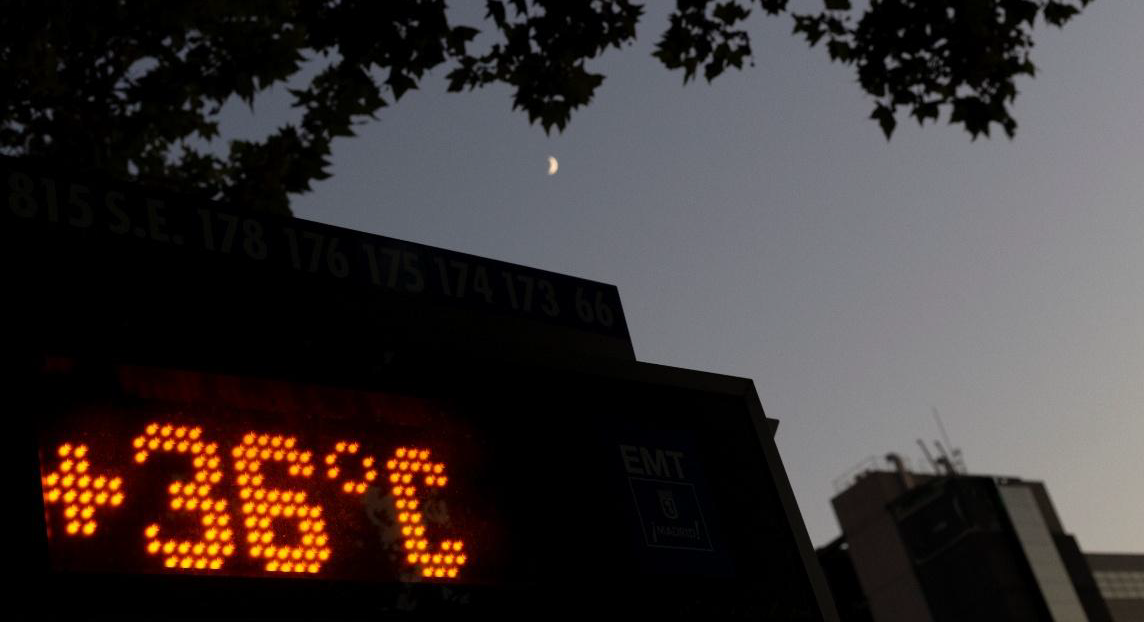An international study led by the CSIC reveals a direct link between hot nights and global mortality
From 1990 to 2018, the effects of nighttime air temperature on mortality were analyzed in 178 locations across 44 countries (including 42 provincial capitals in Spain). The study used two thermal indices to measure this: the excess and duration of warm nights
Evidence was found of an increased risk of mortality associated with warm night indices in all climates and regions except northern Europe, where the association was only suggestive

The Spanish National Research Council (CSIC), through its research institutes in Galicia, Catalonia, and Andalusia, is advancing its investigations into the effects of heat on health with the publication in the journal Environment International of an international study that reveals a global association between warm nights and mortality risk.
The study, titled Short-term association between hot nights and mortality: a multicountry analysis in 178 locations considering hourly ambient temperature, was conducted as part of the global Multi-Country Multi-City Collaborative Research Network (MMC). The project involved over 40 institutions from various countries, including Brazil, Germany, France, China, and the USA. The Spanish participants were the CSIC—represented by the Biological Mission of Galicia, the Institute of Environmental Assessment and Water Research, and the Doñana Biological Station—along with the University of Valencia.
Higher values in the Mediterranean
Overall, the excess nighttime heat showed a consistent geographical pattern, outlining some of the distinct physical and landscape features of the affected countries. The findings primarily demonstrated latitudinal effects and continental influence. The highest values were observed in the central and southeastern Mediterranean basin, with a daily median of excess nighttime heat ranging from 30 °C to >70 °C.
The analysis revealed that warm nights are associated with a mortality increase of up to 3%, making it one of the most affected regions in the world, a finding which demonstrates that nighttime heat has an effect independent of daytime heat, which necessitates specific prevention measures.
The study, therefore, provides evidence that warm nights specifically contribute to the risk of heat-related mortality. Consequently, the research team advocates for modeling the sub-hourly impact of thermal characteristics on nocturnal mortality. This could improve decision-making for long-term adaptation and preventive public health strategies.
"Nighttime heat impedes the body's physiological recovery from daytime heat stress, affects sleep quality, and can aggravate cardiovascular, respiratory, and neurological diseases. The nocturnal exposure to heat is particularly intense in cities with the urban heat island effect. In Spain, Mediterranean cities like Madrid, Valencia, Barcelona, and Seville have a high frequency of tropical and equatorial nights. The most vulnerable populations include the elderly, the chronically ill, and those residing in poorly ventilated urban areas or with limited access to air conditioning," explains Dominic Royé, a Ramón y Cajal researcher at the Biological Mission of Galicia (MBG-CSIC) and the study's first author.
Based on these findings, the research team advocates for several key measures: incorporating nighttime heat into early warning systems, developing urban climate shelters, expanding green spaces, ensuring adequate thermal conditions in homes, hospitals, and residential facilities, and creating prevention plans that recognize nighttime heat as a specific risk.
"Hot nights not only prevent rest but also aggravate the thermal stress accumulated during the day. This study shows that we must pay attention to nighttime heat as a real health risk factor," says Dominic Royé.
"Tropical nights have risen significantly in recent years because of climate change. This summer, we've seen this happen in an unprecedented way, and the situation is getting worse, which puts the most vulnerable people at greater risk," explains Aurelio Tobías, a researcher at the Institute of Environmental Assessment and Water Research (IDAEA-CSIC) and co-author of the study.
"This study confirms that nighttime heat has a direct impact on health, separate from the effects of daytime heat. It is essential that public policies integrate this dimension to provide greater protection for vulnerable populations," notes Veronika Huber, researcher at the Doñana Biological Station (EBD-CSIC) and also co-author.
"Further research will be necessary to examine the relationship between daytime and nighttime heat effects in cities with varying climates and to study vulnerable subgroups. It also remains unknown how the excess heat and his duration are connected, and if short periods of extremely high nighttime temperatures are more detrimental to human health than prolonged elevated temperatures," the researchers state.
Reference:
Royé, D., Sera, F., Tobías, A., Hashizume, M., Honda, Y., Kim, H., ... & Van Dung, D. (2025). Short-term association between hot nights and mortality: a multicountry analysis in 178 locations considering hourly ambient temperature. Environment International, 109719. https://doi.org/10.1016/j.envint.2025.109719